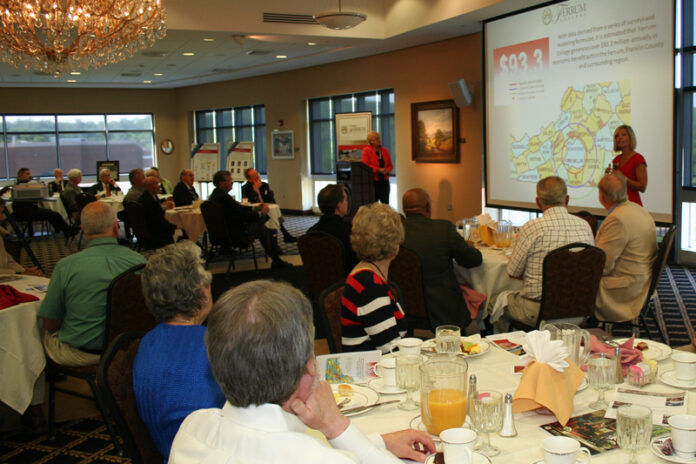Study results show advantages from payroll, construction projects, student spending and cultural offerings.
Ferrum College contributes in excess of $93 million annually to the local economy according to the results of a recent study. The findings show a strong impact in Franklin County, Roanoke and the surrounding region generated from student and employee spending as well as philanthropy and the College’s day-to-day business activities.
“We have long known that the College is the economic engine for western Franklin County,” said Jennifer Braaten, Ferrum’s president. “Now, we can quantify this, and show that our impact reaches even farther – north into Roanoke and south into Henry County and Martinsville.”
The study revealed that Ferrum contributed over $28 million to the local economy during the 2011-2012 timeframe in capital projects alone, including the construction of new residence halls, the renovation of the Blue Ridge Institute, and construction of the recently dedicated Hank Norton Athletic Center. Nearly all of the investment was returned to the community through the use of local contractors and other vendors and suppliers.
With just over 300 faculty and staff members, the College ranks among the largest employers in Franklin County. The total $17 million annual payroll and benefits package translates to a $23.5 million impact on the region. The study showed that employees spent nearly $12 million annually in the immediate Franklin County area. Ferrum College employees and students contributed close to $750,000 in charitable donations as well. Grants, gifts, tuition, summer camps, athletics and other activities comprised a large percentage of the total with $16 million attributed to those areas.
The economic benefits from Ferrum students were felt most strongly in the nearby town of Rocky Mount with Roanoke a close second. The report showed student spending in Roanoke was most likely to be focused on restaurants, entertainment and shopping.
The College’s cultural and artistic attractions, such as the Blue Ridge Institute & Museum, the Blue Ridge Dinner Theatre, and the College’s prominent position on Virginia’s Crooked Road Music Trail generated hundreds of thousands of dollars in revenue which was then returned to the community.
“Because the arts are an important economic driver, colleges, with their array of artistic and cultural offerings, are extremely important to the economy of the communities where they are located,” said Kim Blair, Vice President for Institutional Advancement.


